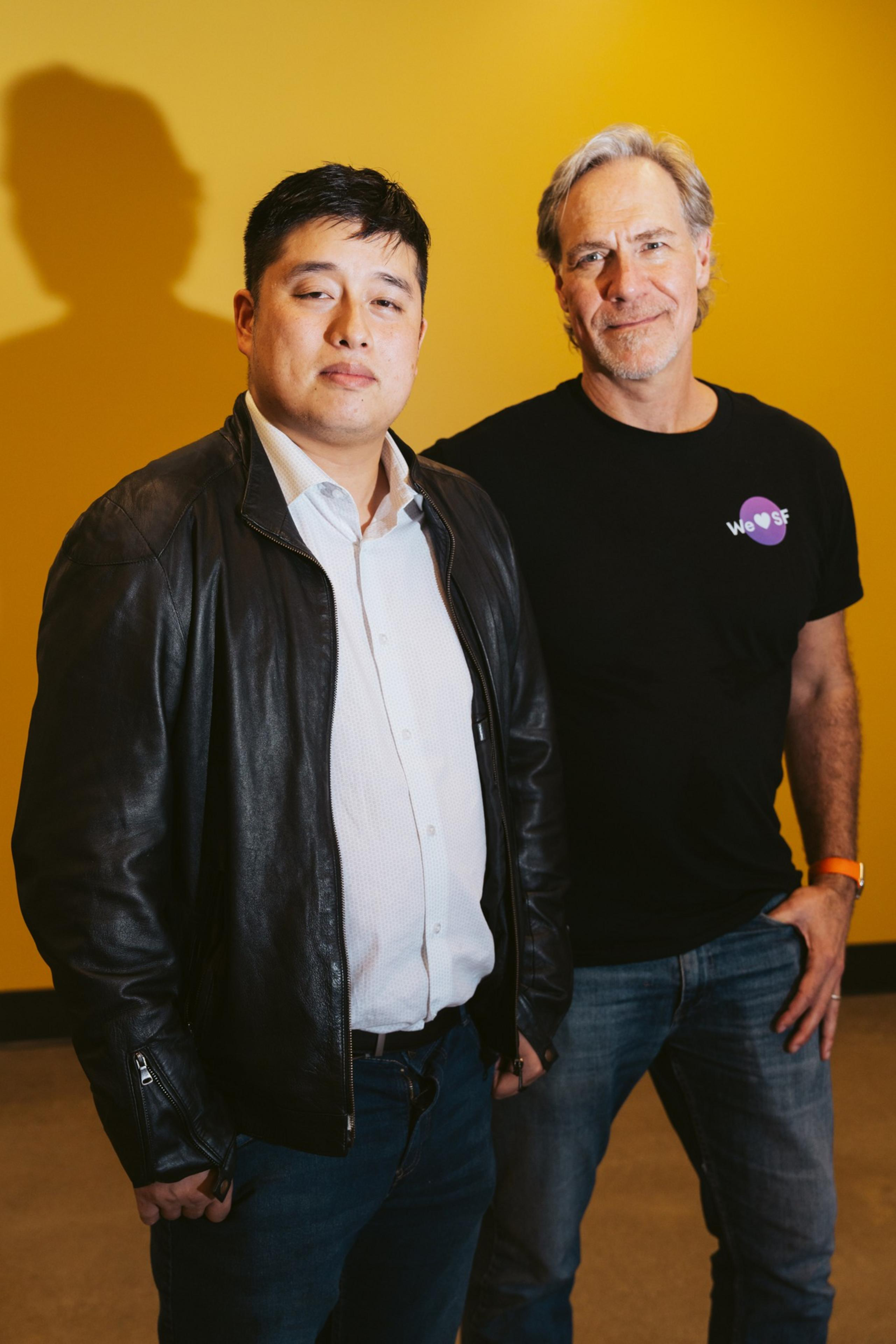On a sunny Saturday afternoon, dozens of people gathered in a church in the Presidio to discuss life’s big questions. No, not around religion: about whether it was time to leave the technology industry for good (opens in new tab).
Dubbed a “career transition” conference, the event aimed to get attendees talking about other potential paths as tech has reeled from sky-high job cuts (opens in new tab) over the past few years, with layoffs ravaging giant firms like Google, Apple, and Meta (opens in new tab), as well as smaller companies (opens in new tab) and startups (opens in new tab). According to tracking site Layoffs.fyi (opens in new tab), more than 140,000 tech workers have been laid off in 2024 alone.
“It’s brutal — companies will drop you at the drop of a hat,” event organizer Albert Qian said at the kickoff.
He runs a community for job seekers (opens in new tab), giving him a front-row seat to the desperation (and demoralization) folks are feeling. On Saturday, he aimed to give attendees a pathway to a job in another field: “I think more people would consider switching industries if they knew how,” he said. “That’s my call to action.”
Think of it like a tech boot camp, but instead of teaching people how to code and break into the industry, it synthesized approaches for how to leave it.

Panels featured people who had left tech for entrepreneurship — like a customer success manager turned hat maker and a data scientist who started a tutoring business — as well as those who work in other industries like social work and real estate, or trades like painting, plumbing, and cabinetry.
During one session, career coaches and recruiters doled out advice on résumé tweaks, transferable skills, and strategies for changing industries.
Software engineer Jacques Beauvoir said he showed up because he’s done some soul-searching since getting laid off from a tech job a few years ago and feels that the industry can lack both stability and purpose.
“You see news article after news article about layoffs, everyone’s looking for a job, something’s posted on LinkedIn for an hour and there’s 200-plus applicants already, and you’re grinding at these interviews,” he said. “It wears on you.”
Another attendee also said he’s thought about switching careers since struggling to find a new position after losing his tech job several months ago. Learning a trade — like being an electrician or working in HVAC — has started to look more appealing.
“It’s not something I considered until recently. I assumed I was going to stay in tech ’cause that’s where the money is,” he said. But his perspective is shifting and the stigma is sloughing away. His dad just bought a house in Mexico thanks to money earned from working in the trades, he said: “Those careers are actually pretty stable. It’s hard work, but the work is there.”
That refrain came through loud and clear on a panel with a half-dozen trade workers. Morgan Haines (opens in new tab), who owns a house painting company, talked about the constant need for workers, and when Rickey Dunbar (opens in new tab), who runs an electrical business, mentioned earning $600,000 a year, the audience’s ears seemed to perk up.
While Dunbar and Haines both told The Standard that they haven’t hired any former techies for their businesses yet, they hope the conference inspires someone to consider the switch.
“The market is very competitive in tech right now: My brother’s got a physics and an astrophysics degree from Berkeley, and he can’t find a job,” Haines said. “Meanwhile, the trades are dying for young people who are hungry for work.”
But the conference’s sparse attendance may be a sign that the techie-to-trades pitch lacked some appeal.
While roughly 185 people had signed up for the daylong event, fewer than 50 attendees actually signed in, according to Qian, leaving many of the chairs empty throughout the day. (The beautiful weather, hangovers from Friday night’s Halloween parties, and the fact that the event was free and livestreamed may all have contributed to the lower-than-expected attendance, he said.)
Still, those who were present seemed to leave feeling inspired. One attendee appreciated all the different perspectives, she said, while engineer Beauvoir loved the symmetry between the varied careers.
“You have all these tradespeople, electrical engineers, and entrepreneurs, but they’re all just business people at the end of the day,” he said. “The core concepts of each thing, like having pride in your work and figuring things out along the way, were there across the board.”

While he plans to take his time figuring out what’s next, Beauvoir said he was feeling more confident that the tech industry isn’t the only way forward.
So too said panelist Sandy McClenahan.
“There are definitely days I miss those tech paychecks — those golden handcuffs are very pretty,” she said about leaving tech. “But I’m also finding that I can continue to walk down this path and know that the possibilities are endless.”
